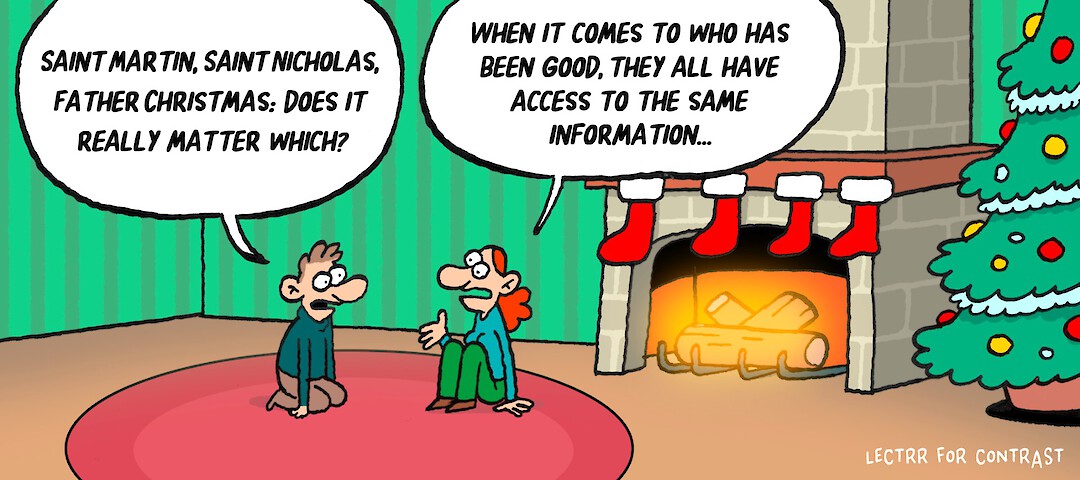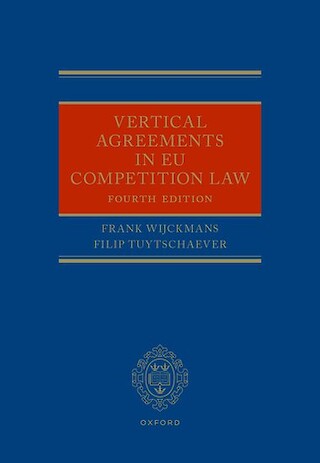In the Picture

New rules on cooperation with competitors are coming
December 2022Imagine...
You are chief innovation officer for a car manufacturer. One of your department's key projects is to develop self-driving cars. Your department is working overtime because competition in this field is intense. However, you and your competitors would benefit from working together for many reasons: results would be achieved faster, massive investments would be better spread, and this would contribute to greater sustainability. After all, self-driving cars lead to more efficient traffic flows, lower fuel consumption and lower CO2 emissions.
You know some of your colleagues who work for the competition as you meet regularly in your trade association’s working group on self-driving cars. You are eager to encourage them to exchange ideas and work together.
During a management meeting, you pitch your idea and you are immediately instructed not to take any further steps without having discussed it in detail with your legal department. You might have known.
A brief clarification.
Cooperation between competitors and also the exchange between competitors of commercially sensitive information is closely monitored from a competition law perspective.
In doing so, the European Commission uses guidelines on what is and isn’t allowed. These are the guidelines on horizontal cooperation agreements ("horizontal guidelines"). The Commission has also adopted two horizontal block exemption regulations. These provide a safe harbour, on the one hand, for specialisation agreements (specialisation in production) and, on the other hand, R&D agreements. To benefit from the safe harbour, the agreements must meet strict conditions. If they do not (for example, because the parties exceed certain market share thresholds or because their agreements contain restrictions of competition not covered by the block exemption), the parties have to rely on a self-assessment to convince competition authorities or judges, where appropriate, of the pro-competitive nature of their cooperation.
After the block exemption regulation on vertical agreements and the vertical guidelines, this time it is the turn of the horizontal block exemption regulations and guidelines to be revised. These are due to expire at the end of 2022 and the Commission published its proposals for revision earlier this year.
With its proposals, the Commission aims to respond to criticism that the texts of the current horizontal block exemption regulations and horizontal guidelines are not clear enough and considered too strict in a number of areas, and also to adapt its policy to developments over the past decade, such as the digital and green transitions.
Importantly for our chief innovation officer, this does not necessarily mean that the R&D block exemption agreement will provide a wider safe harbour for his plans to cooperate with competitors. Indeed, for R&D agreements involving entirely new products, technologies and processes, the Commission proposes to apply the safe harbour only if a sufficient number of comparable competing R&D efforts remain.
In addition, the chief innovation officer's legal department will have its work cut out with the proposal of new horizontal guidelines. The proposal includes a rather strict update of the guidelines on the exchange of information between competitors, as well as a new chapter on the competition law analysis of agreements pursuing sustainability objectives. This does not meet the demand of some for a block exemption regulation for sustainability agreements. However, the Commission does provide a "soft" safe harbour for agreements on sustainability standards, where competitors agree to phase out unsustainable products and processes or replace them with sustainable ones.
Concretely.
- The horizontal block exemption regulations provide a safe harbour for categories of specialisation agreements and R&D agreements, and the horizontal guidelines explain the competition law analysis of these agreements, as well as those of other collaborations between competitors, such as joint buying and selling, and also the exchange of information between competitors.
- The current horizontal block exemption regulations and horizontal guidelines date from 2010 and expire at the end of 2022.
- Earlier this year, the Commission published its proposals for new horizontal block exemption regulations and horizontal guidelines, updating the existing ones to reflect developments over the last 10 years, including the greater emphasis on sustainability.
- The proposals are stricter than the current regime in certain areas, including information exchange between competitors and cooperation between competitors on innovation.
- In order to thoroughly analyse the feedback to its proposals, and possibly to fine-tune its proposals, the Commission has extended the validity of the two horizontal block exemption regulations until 30 June 2023.
Want to know more?
Please consult our website or contact one of our team members if you have questions or require more information:












